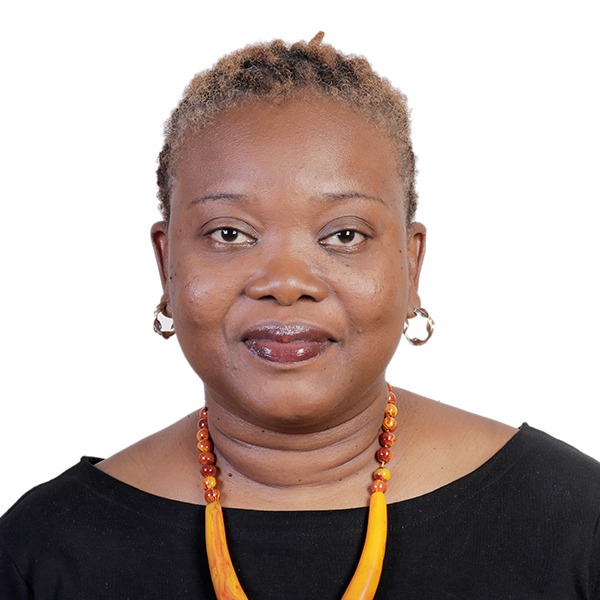By Stellamaries Amuwa, Abuja
The Initiative for Research, Innovation, and Advocacy in Development (IRIAD) and Partners West Africa, Nigeria (PWAN) joins Africans across the world in commemorating the 20th anniversary of the African Charter on Human and Peoples’ Rights on the Rights of Women in Africa -the Maputo Protocol.
According to a press statement issued and signed by the Executive Director, Initiative for Research, Innovation, and Advocacy in Development (IRIAD),
Princess Hamman-Obels and Kemi Okenyodo, Executive Director, PWAN yesterday in Abuja, have called on the federal government and relevant stakeholders to intensify their efforts in combating gender-based violence and addressing violations of women’s rights.
Hamman-Obels said, “We reiterate the pressing need for stakeholders to prioritize the socio-economic empowerment of women and integrate them as key players in public offices and decision making.
“One of the most comprehensive and forward-thinking instruments for ensuring and safeguarding women’s human rights in Africa.
The Maputo Protocol was adopted by the African Union (AU) Heads of State and Government in Maputo, Mozambique, on July 11, 2003. The Protocol serves as an obligatory framework to address legal, cultural, and socio-political constraints on African women.
“The Protocol among other things, has provided significant rights to African women and girls and has progressive measures on: gender discrimination, women’s access to justice and equal protection, participation in politics and decision making, reproductive health rights, economic empowerment, harmful trado-cultural practices, women’s digity, peace, and ending violence against women.
The evident patriarchal imbalance within African societies has created a gender gap between men and women of the continent. Although varying in different countries, the marginalization and exclusion of women, gender-based violence, gender biases, and discrimination, and the violation of women’s and girls’ fundamental human rights remain significant issues of concern.
Similarly, Kemi Okenyodo noted that “The ratification of the Protocol by 43 out of 55 African countries signifies a notable effort to dismantle obstacles facing women. Nigeria ratified the protocol on December 16, 2004. While the complete domestication of the Protocol is pending, certain aspects of the Protocol have been incorporated into some of Nigeria’s laws and policies such as the Violence Against Persons Prohibition Act (VAPP), 2015, the National Strategy to End Child Marriage in Nigeria 2016-2021, the Referral Guide for Gender-Based Violence, and the National Gender Policy (2021-2026).
Despite these efforts, Nigeria still has a long way to go in achieving gender equity and inclusion. Women play critical roles in the socio-economic and political development of society, yet their contributions are often constrained, limiting their full potential. Some Nigerian communities impose restrictions on female education, relegating women to domestic roles. The parity of women’s participation and representation in the political and public spheres is abysmal. For instance, from the 2023 general election, out of 109 Senators and 360 House of Representatives of the 10th National Assembly, there are only 20 women, 3 Senators and 17 Members. Similarly, out of 36 governors in Nigeria, we have zero number of women and 57 women Members out of 990 State Assembly Members. Consequently, advocacy for gender bills, such as the citizenship bill, indigeneship bill, appointive position bill, reserved seat bill, and Gender and Equal Opportunities bill, has become necessary to enhance women’s participation in democratic governance.
“The Maputo Protocol’s goals of eliminating gender violence and discrimination, protecting women’s rights, and promoting their inclusion and participation strongly resonate with our values at IRIAD and PWAN. Therefore, we are emphasizing the critical need to embrace gender equity by providing equal opportunities for both men and women, and enabling the maximization of women’s and girls’ potential for sustainable development.
“A recent encouraging example is the appointment of Dr. Toyin Sakirat Madein as the Accountant General of the Federation, which not only signals women’s representation in public spaces but also serves as an inspiration for other women to break gender biases and ceilings.
We cannot overlook the escalating cases of violence against women and girls, which pose a severe threat to the overall well-being of the female gender. Hence, we call upon the government and relevant stakeholders to collectively intensify their efforts in combating gender-based violence and violations of women’s rights. Additionally, government must prioritize the socio-economic empowerment of women and actively integrate them as key players in public offices and leadership. Only through these concerted actions can we obliterate the historical barriers impeding progress for women.



